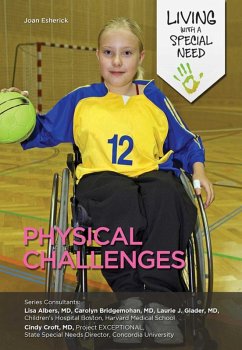
Recovering from Stroke - Overcoming the Challenges of Stroke (eBook, ePUB)
Sofort per Download lieferbar
7,49 €
inkl. MwSt.

PAYBACK Punkte
0 °P sammeln!
"Recovering from Stroke - Overcoming the Challenges of Stroke" is a comprehensive guidebook for stroke survivors, their families, and caregivers. The book offers a detailed understanding of the recovery process, including physical and cognitive rehabilitation, emotional support, and lifestyle changes that are necessary for recovery.The book emphasizes the role of neuroplasticity, which is the brain's ability to change and adapt after a stroke. The authors provide insights into how stroke survivors can take advantage of neuroplasticity to improve their chances of recovery.The book also covers t...
"Recovering from Stroke - Overcoming the Challenges of Stroke" is a comprehensive guidebook for stroke survivors, their families, and caregivers. The book offers a detailed understanding of the recovery process, including physical and cognitive rehabilitation, emotional support, and lifestyle changes that are necessary for recovery.
The book emphasizes the role of neuroplasticity, which is the brain's ability to change and adapt after a stroke. The authors provide insights into how stroke survivors can take advantage of neuroplasticity to improve their chances of recovery.
The book also covers the importance of physical rehabilitation and how it can help stroke survivors regain their independence. The authors describe different types of therapy, exercises, and equipment that can aid recovery, including occupational and speech therapy.
Another crucial aspect of stroke recovery covered in the book is emotional support. The authors acknowledge the significant emotional toll that a stroke can take on both the survivor and their family. They provide practical advice on how to manage the emotional challenges that come with recovery, including coping strategies, self-care, and building a positive mindset.
The authors also explore the impact of stroke on communication and provide guidance on how to improve communication skills after a stroke. The book emphasizes the importance of family support and how caregivers can play a vital role in a stroke survivor's recovery.
In addition, the book covers medication management and the importance of making lifestyle changes, such as healthy eating, regular exercise, and managing risk factors such as high blood pressure and diabetes.
Overall, "Recovering from Stroke - Overcoming the Challenges of Stroke" is a valuable resource for anyone affected by stroke. The authors offer practical advice, insights, and support to help stroke survivors navigate the challenges of recovery and achieve the best possible outcomes.
The book emphasizes the role of neuroplasticity, which is the brain's ability to change and adapt after a stroke. The authors provide insights into how stroke survivors can take advantage of neuroplasticity to improve their chances of recovery.
The book also covers the importance of physical rehabilitation and how it can help stroke survivors regain their independence. The authors describe different types of therapy, exercises, and equipment that can aid recovery, including occupational and speech therapy.
Another crucial aspect of stroke recovery covered in the book is emotional support. The authors acknowledge the significant emotional toll that a stroke can take on both the survivor and their family. They provide practical advice on how to manage the emotional challenges that come with recovery, including coping strategies, self-care, and building a positive mindset.
The authors also explore the impact of stroke on communication and provide guidance on how to improve communication skills after a stroke. The book emphasizes the importance of family support and how caregivers can play a vital role in a stroke survivor's recovery.
In addition, the book covers medication management and the importance of making lifestyle changes, such as healthy eating, regular exercise, and managing risk factors such as high blood pressure and diabetes.
Overall, "Recovering from Stroke - Overcoming the Challenges of Stroke" is a valuable resource for anyone affected by stroke. The authors offer practical advice, insights, and support to help stroke survivors navigate the challenges of recovery and achieve the best possible outcomes.
Dieser Download kann aus rechtlichen Gründen nur mit Rechnungsadresse in A, B, CY, CZ, D, DK, EW, E, FIN, F, GR, H, IRL, I, LT, L, LR, M, NL, PL, P, R, S, SLO, SK ausgeliefert werden.













